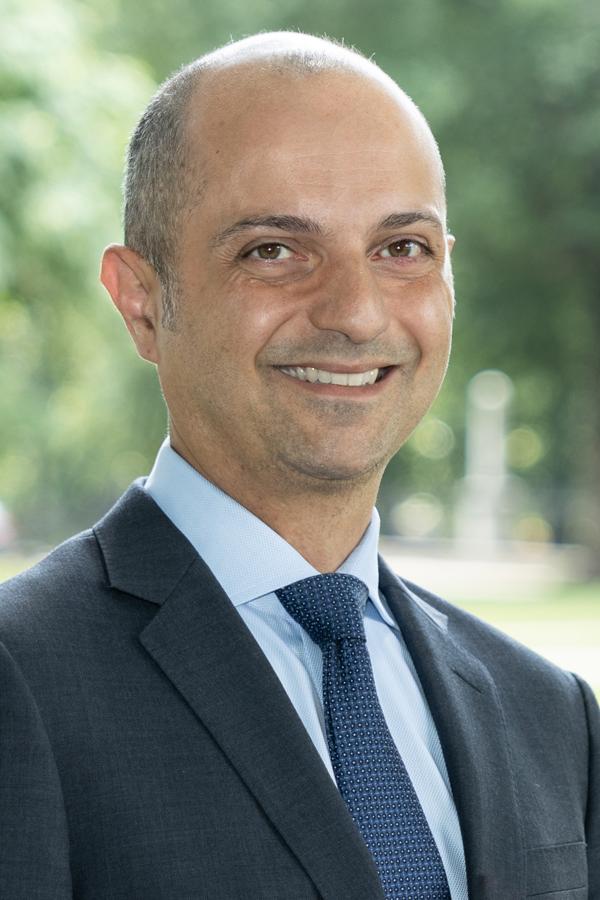About
Fabio Petrocca, MD, is an oncologist at Boston Medical Center (BMC), where he is also Director of the CAR T-cell Therapy Program. Dr. Petrocca is also an assistant professor of Medicine and Director of the Cellular Therapy Program at Boston University Chobanian & Avedisian School of Medicine. He is a physician-scientist focused on treating benign and malignant hematologic conditions, including
... lymphomas, leukemias, and multiple myeloma. His research focuses on the development of immune effector cell therapies for cancer and enabling equitable patient access to innovative and powerful cancer cell therapies such as CAR T. After completing his medical degree and oncology training in Italy, Dr. Petrocca completed a research fellowship at the Program in Cellular and Molecular Medicine at Harvard Medical School. He has been practicing for more than 15 years.
-
Departments
-
Specialties
Hematologic malignancies, lymphomas, leukemias, multiple myeloma
-
Languages
Italian -
Pronouns
He/Him
-
Contact
617.414.0940 -
Primary Location
830 Harrison Ave
3rd Floor
Boston, MA 02118
-
Administrative Title
Director, Cellular Therapy Program and Assistant Professor of Medicine, Boston University Chobanian and Avedisian School of Medicine
-
Residency
Oncology, University of Ferrara, Italy, 2004-2008 -
Fellowship
Research Fellowship, Program in Cellular and Molecular Medicine, Harvard Medical School, 2008-2012 -
Education
University of Rome, Sapienza, Italy, 2004 -
Board Certifications
Oncology (Italy)
My Publications
-
Idecabtagene Vicleucel in Relapsed and Refractory Multiple Myeloma
Idecabtagene vicleucel (ide-cel, also called bb2121), a B-cell maturation antigen-directed chimeric antigen receptor (CAR) T-cell therapy, has shown clinical activity with expected CAR T-cell toxic effects in patients with relapsed and refractory multiple myeloma. -
Anti-BCMA CAR T-Cell Therapy bb2121 in Relapsed or Refractory Multiple Myeloma
Preclinical studies suggest that bb2121, a chimeric antigen receptor (CAR) T-cell therapy that targets B-cell maturation antigen (BCMA), has potential for the treatment of multiple myeloma. - BCMA targeting chimeric antigen receptor (CAR) T cell therapy has shown deep and durable responses in multiple myeloma. However, relapse following therapy is frequently observed, and mechanisms of resistance remain ill-defined. Here, we perform single cell genomic characterization of longitudinal samples from a patient who relapsed after initial CAR T cell treatment with lack of response to retreatment.
- Very little is known about the risk that severe acute respiratory syndrome coronavirus 2 (SARS-CoV-2) viral infection poses to cancer patients, many of whom are immune compromised causing them to be more susceptible to a host of infections. In this case report, we detail the successful treatment of a relapsed and refractory multiple myeloma (MM) patient treated with an anti-B cell maturation antigen (BCMA) chimeric antigen receptor (CAR) T cell therapy immediately following clinical recovery from COVID-19.
 en
en 



 Français
Français Deutsch
Deutsch Italiano
Italiano Español
Español Tiếng Việt
Tiếng Việt Kreyol ayisyen
Kreyol ayisyen